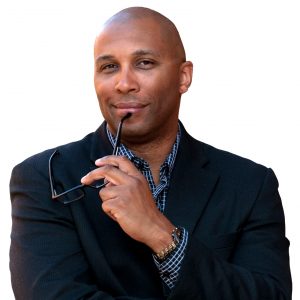 We live hectic lives these days; between duties at home and at work, it can be difficult to take a moment to catch up. With Take 5, we’re making it easy for you to learn something new in five minutes about Bellevue College. In this edition of Take 5, we’re talking with Professor Eric C. Davis about “Rap 101”; how it impacts students understanding of social justice and changes the way we approach learning. Davis, who is in his eighth year with Bellevue College, teaches Introductory Sociology, Sports in Society, Popular Culture, Education in the 21st Century, and Sociology of Race and Ethnicity.
We live hectic lives these days; between duties at home and at work, it can be difficult to take a moment to catch up. With Take 5, we’re making it easy for you to learn something new in five minutes about Bellevue College. In this edition of Take 5, we’re talking with Professor Eric C. Davis about “Rap 101”; how it impacts students understanding of social justice and changes the way we approach learning. Davis, who is in his eighth year with Bellevue College, teaches Introductory Sociology, Sports in Society, Popular Culture, Education in the 21st Century, and Sociology of Race and Ethnicity.
1. What is RAP 101?
RAP 101 has a dual function: It is a lecture that I offer via the Humanities Washington’s Speakers Bureau and it is also the pedagogy I use to design and teach my classes here at Bellevue College. When I started RAP 101 in 1990, it had a dual meaning: rap music as an art form, and, “let’s rap…” as a way to ask people, “What is really going on in our society? Do these lyrics speak to you?”
2. What can students expect to learn and why do you think it is so popular?
To be clear: I don’t teach people in my classes how to rap (smile). Although, I am known to recite a verse or two during the course of any given lecture. That being said, I use the genre of hip-hop music to inspire – or provoke – conversation on topics related to diversity and social justice. The idea is to get people thinking and talking about what we can do to promote genuine social change in our world. The music and lyrics provide a compelling voice to subjects that would otherwise prove boring or convoluted if left to all of us academic folk. Students appreciate it when faculty use creative teaching methods. Listening to music and annotating song lyrics just happen to be a creative way to learn!
3. Why are lectures like RAP 101 important?
Interactive, multimedia lectures make learning fun and encourage critical thinking on behalf of those in the audience. Music and poetry have always been amazing ways to get us thinking about the world we live in and the people all around us. Rap music carries on that tradition. It also carries on the tradition of African American protest music. Black folks have always expressed ourselves through our art and music. Hip hop is a continuation of this legacy.
4. In what ways would you like to see this body of work expand both on and off the Bellevue College campus?
RAP 101, as a lecture, has had a public presence for many years now. I’d love to see more people use the RAP 101 methodology to engage civic conversation and inspire social change. With the addition of a SOC 198 seminar spring quarter, RAP 101 is now officially a part of our curriculum here at Bellevue College. I am humbled by that fact and very grateful to my colleagues in Sociology for encouraging me to develop this new course.
Last Updated October 3, 2016
